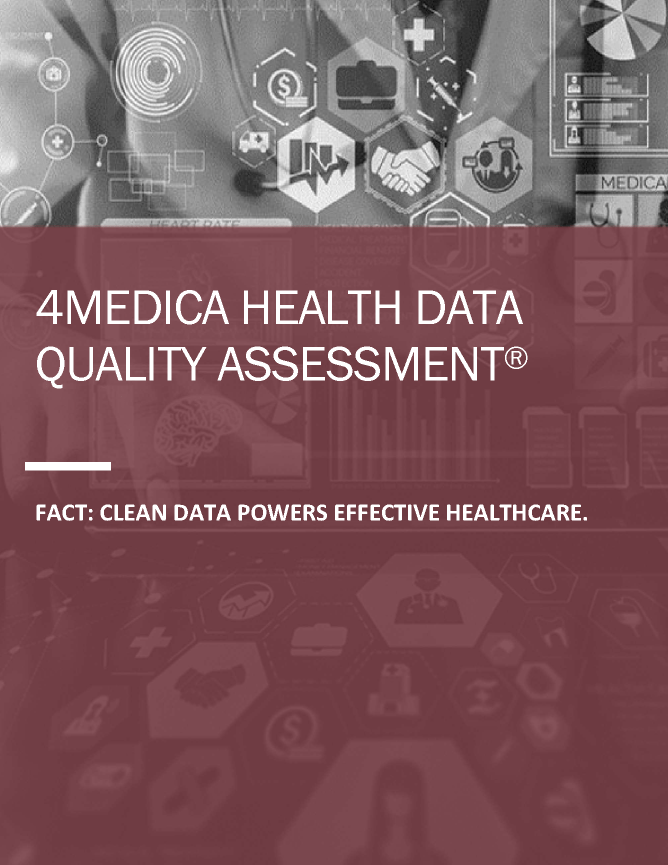The Idaho Health Data Exchange goes beyond many traditional HIEs, incorporating advanced data sharing capabilities and actionable data insights. Its master patient index has proven quite useful during COVID-19.
This article was written by Bill Siwicki and published by Healthcare IT News. View the full article.
When Capitol Health Associates was brought in to run the Idaho Health Data Exchange, one of the biggest challenges was overcoming the lack of confidence from Idaho’s stakeholders in the HIE’s ability to deliver complete and reliable data.
The Problem
To meet the needs of Idaho’s providers, payers and other organizations, the top priority was to deliver a longitudinal health record that stakeholders could trust to achieve care management, performance measurement and quality improvement. Step one was implementing a proven identity-resolution solution, which is at the heart of providing reliable health information.
IHDE needed to establish a unique patient ID for every enrolled individual who has records in the HIE, said Dr. Craig Jones, chief medical officer at Idaho Health Data Exchange.
“We knew that identity management was foundational in building the capabilities and services of the HIE platform,” he explained. “If you can’t reliably link the information on people coming from different sources, you can’t even start the game. Therefore, the need to fast-track our ability to match accurate patient records aggregated from a myriad of stakeholders across our statewide healthcare delivery system was paramount to our success.”
Proposal
To assist IHDE with delivering reliable longitudinal health record information, the HIE selected health IT vendor 4medica for its master patient index technologies Big Data MPI and MPI-as-a-Service for identity resolution.
“In addition to improving identity management, we are taking steps to broaden and enhance the information and data sets available to IHDE participants to further support care management and data-driven, quality-of-care measurements,” Jones said.
“This work encompasses normalizing and standardizing data with clinical terminology, and processing the data for aggregation in our enterprise data warehouse that supports FHIR-based interoperability, population health tools and analytics.”

Jones said that 4medica understood the immense data quality issues surrounding patient identification. The vendor’s first action was to conduct an in-depth assessment of the HIE’s health data. Based on that analysis, the vendor proposed cleansing and normalizing the data, deleting duplicate record information, and isolating data issues at every level to address and drive interaction of patient-identity matching across all integrated data sources.
“4medica further outlined a master data management road map,” Jones added. “The company advised our leadership team to take a hybrid approach to create and implement our own robust enterprise master patient index solution to integrate the wide array of clinical and nonclinical data sources. Our partnership with 4medica evolved to codeveloping an architecture where identity resolution drove all connectivity interaction and interoperability throughout the systemwide integration.”
Identity resolution was central to the HIE’s ability to deliver services to support its provider community in delivering the highest quality of care in the most cost-effective setting, he said.
“This solution became even more valuable when our state’s dedicated healthcare workers began battling the pandemic,” he noted. “IHDE realized its goal of guaranteeing a better than 99% clean clinical data repository, which is fundamental to achieving patient safety, data integrity, security and interoperability.”
The outcome, he added, is a trusted data platform supporting a high-quality longitudinal care record and an end-to-end data quality program for IHDE stakeholders in helping to improve care across the state.
Meeting the Challenge
As part of the HIE’s strategy, IHDE focused on a modular approach using best-of-breed technology, said Prudence Vincent, RN, who is the director of customer operations and engagement at Idaho Health Data Exchange. The HIE engaged 4medica, Aunt Bertha, MDM and KPI Ninja to establish a “super stack” as the heart of Idaho’s health data ecosystem, she explained.
“The new IHDE platform tools are intended to support improving state population health and value-based care initiatives,” she said. “As our data integrity partner, 4medica provided patient-matching assessment, cleansing and aggregating of unstructured and structured data to achieve the desired outcome of patient identity resolution, [and] assuring IHDE participants the right data was captured at the right time, the first time.”
The vendor’s build of a data quality program to augment development of the eMPI was a big turning point for IHDE, she added.
“For one, we have data that we and our HIE stakeholders can count on for completeness and quality; second, we’re conducting data quality audits to address any detected problems; third, our analytics tools incorporate key performance indicators to test how we can construct numerators and denominators against standardized measurement requirements; and fourth, we’re testing data quality on incoming clinical messages through an interface,” she explained.

The HIE also established a relationship with Aunt Bertha to connect people seeking help to the verified social care providers that serve them while ensuring HIE data is available and integrated with the medical health record. In addition, a strategic partnership with KPI Ninja offers IHDE stakeholders the ability to better manage key performance indicators and achieve objectives through data analytics.
“By combining medical, behavioral and social determinants of health information, we are creating a robust super-dataset of conventional and nonconventional data,” Vincent said.
“Our strategic technology solution goes beyond traditional health information exchange and incorporates advanced data sharing capabilities, and will provide actionable data insights. Our modular approach and strategic solution, built on an enterprise approach to identity management, will integrate and connect multiple platforms to a common FHIR-based data lake assuring consistent and reliable data across all HIE functions.”
With an eye on the future, 2021 looks to be a promising year for growth and development, Vincent predicted.
“We will continue to expand our footprint in the marketplace and enhance existing interfaces to bring more robust data sources to our stakeholders,” she said.
“We also look forward to maturing interoperability across our modular technology. As well, we will grow our shared services to help expand the provider’s ability to better manage uninsured patient populations, easily process prior authorizations and medication data, and create referral networks to improve healthcare outcomes and decrease administrative burden.”
Results
With its new master patient index technologies in place, IHDE conducted an in-depth data hygiene assessment to isolate issues at every level. It then outlined a master data management road map to identify whether further technology upgrades or implementations were warranted. The HIE’s MPI technology reduced IHDE’s detected duplication rate to less than 1%, Vincent reported.
“We’ve seen a steady increase of users of our HIE portal over the past year during COVID-19,” she observed. “We attribute the increased usage to outreach efforts to our stakeholders to meet the needs of their patient communities, coupled with a growing trust of our data.”
Because of dramatically improved patient-identity matching as the foundation of the HIE’s “super stack,” IHDE offers the ability to generate data-driven insights to support whole-person care and support population health across the continuum of care, she said.
Advice for Others
“Provide a health information infrastructure that is stakeholder-driven and designed to meet their priorities and use-cases, and, in doing so, deliver a reliable longitudinal medical record and the data required for quality care delivery and improvement,” Vincent advised her peers. “Your solution should solidly deliver the technology to meet the needs of the citizens for which it is meant to serve.”
Team with resources that have the technology and know-how to give the results needed to meet goals, she added. The right technology is absolutely essential to adequately aggregate, cleanse and normalize the data to get the most accurate, reliable and trustworthy patient information, she said.
“Develop a well-thought-out approach to building the framework and foundation for which all of the services you provide can be seamlessly incorporated as your organization grows and expands,” she concluded. “Be flexible in your approach and cognizant of the needs of the stakeholders and communities that you serve.”

